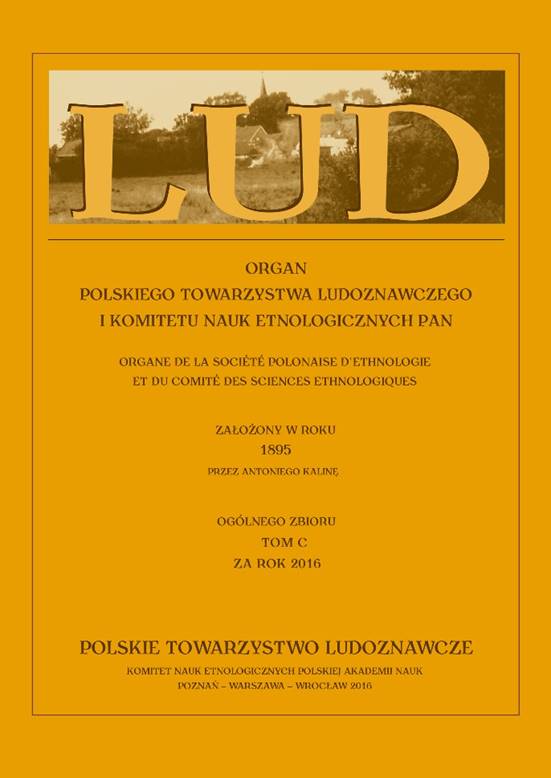MALINOWSKI’S LEGACY: REFLECTIONS ON ETHNOGRAPHY IN POLAND, AND POLAND IN ETHNOGRAPHY
MALINOWSKI’S LEGACY: REFLECTIONS ON ETHNOGRAPHY IN POLAND, AND POLAND IN ETHNOGRAPHY
Author(s): Marysia H. GalbraithSubject(s): Anthropology, Recent History (1900 till today), Cultural Anthropology / Ethnology
Published by: Polskie Towarzystwo Ludoznawcze
Keywords: Bronisław Malinowski; ethnography; anthropology; Poland; legacy;
Summary/Abstract: When I started graduate school in 1988, I thought I wanted to do research somewhere typical for an anthropologist, such as New Guinea. I had read Bronisław Malinowski’s seminal ethnography Argonauts of the Western Pacific, and was enchanted by the tropical Trobriand Islands and the brave Argonauts who set out across the sea in outrigger canoes to participate in the Kula exchange. I dreamed of living in a remote corner of the world, and through attentive listening, observing, and participating, I imagined that, like Malinowski (1961 [1922]), I would uncover the underlying structure, the imponderabilia of actual life, and the native’s point of view. But then in 1989, the world changed. Following the Round Table Agreement in Poland, gashes in the Iron Curtain exposed tantalizing glimpses of a world that had been largely closed off to those of us living on the other side. I already knew a little about that world from a visit in 1986, and from my mother’s stories about her upbringing in Warsaw before World War II. But it also was clear that Eastern Europe was the new frontier for anthropology. Few (from outside, at least) had studied there, and it looked like everything was about to change, anyway. So no one knew exactly what was going to take shape.
Journal: LUD
- Issue Year: 100/2016
- Issue No: 1
- Page Range: 93-101
- Page Count: 9
- Language: English

